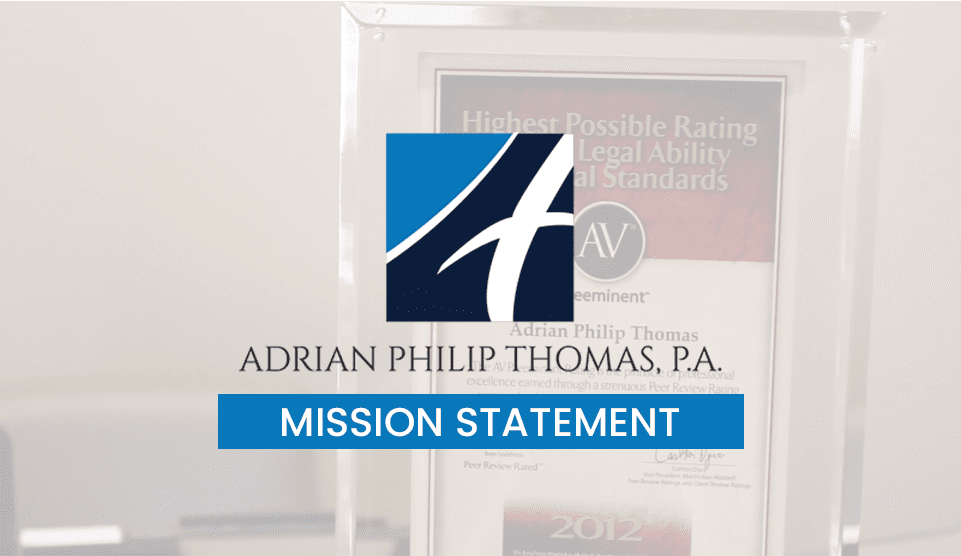Revocable Trusts
The revocable trust is a popular and effective estate-planning device. Aside from control of assets over multiple generations and other benefits, the revocable trust is an effective means of avoiding probate. A Grantor’s right to revoke an inter vivos trust does not cause the trust property to be includable in the probate estate after the Grantor’s death and trust assets should not be scheduled on a probate inventory. However, it is important to note that trust assets can be used to compute the elective estate for purposes of determining a surviving spouse’s elective share (F.S. §732.201-732.2155) and the trustee of a revocable trust can be required to pay over to the personal representative (F.S. §733.707(3)).
Life Insurance Proceeds
When there is life insurance on the life of the decedent, the all-important question is “who is the designated beneficiary?” If the insurance, by designation or otherwise, is payable to the insured or to the insured’s estate, then the proceeds shall become a part of the estate “for all purposes and shall be administered by the personal representative of the estate of the insured in accordance with the probate laws of the state.” F.S. §222.13(1). Conversely, if the insurance has a designated beneficiary, it shall be “exempt from the claims of creditors” and thus would not be included on the decedent’s probate inventory.
Jointly Owned Property
To the extent the jointly-owned property was tenants-in-common, the decedent’s interest in said property would be included on the probate inventory; however, if the joint ownership passes by right of survivorship, then that property passes instantly to the surviving joint tenant and the probate estate will not include that asset. For various types of bank accounts, refer to Chapter 655 of the Florida Statutes regarding deposits in two or more names.
Homestead Real Property
If the decedent’s homestead property was in his or her sole name at the date of death, then the property must be included on the probate inventory, even though it is exempt from the claims of creditors and should be scheduled with a value of -0- on the inventory.
Claims Against Other Parties, Including Wrongful Death
If the decedent held promissory notes or had judgments against other parties, those assets should be listed on the probate inventory. An entire chapter could be written about claims for wrongful death; however, special rules apply (See, F.S. §768.16 et seq.) and they are beyond the scope of this presentation. As a general rule, claims that survive the decedent’s death and that can be brought by the personal representative are probate assets and should be listed on the inventory. Valuation of a wrongful death claim is also beyond the scope of this presentation but requires considerable due diligence and expert advice.
Understanding the Various Forms of Administration
Generally, the three threshold questions a practitioner must ask before commencing probate administration are: 1) are there any assets subject to probate administration in the State of Florida? If the answer is “yes,” then the practitioner needs to know: 2) was the decedent a Florida resident? and 3) did the decedent have a valid Last Will and Testament?
Residence
If the decedent died a resident of Florida, then probate is said to be “domiciliary” and administration is governed by Chapter 733 of the Florida Statutes and the corresponding Probate Rules. If the decedent died a resident of another state but has assets that need to be probated in Florida, then probate is said to be “ancillary” and administration is governed by Chapter 734 of the Florida Statutes and the corresponding Probate Rules.
Florida Statute §734.102 (1) provides “if a nonresident of this state dies leaving assets in this state, credits due from residents in this state, or liens on property in this state, a personal representative specifically designated in the decedent’s Will to administer the Florida property shall be entitled to have ancillary letters issues, if qualified to act in Florida.” Furthermore, if the decedent’s Will and codicils are executed as required by the Probate Code, they shall be admitted to probate (See, F.S. §734.102 (3)).
Florida Probate Rule 5.470 (a) provides that the petition for ancillary letters of administration shall include an authenticated copy of so much of the domiciliary proceedings as will show:
- For a testate estate the Will, petition for probate, order admitting the Will to probate, and authority of the personal representative; or
- For an intestate estate, the petition for administration and authority of the personal representative to act.
Once the ancillary personal representative has been appointed, probate proceeds in much the same manner as it would under domiciliary administration, with the same notice, accounting, and discharge requirements.
A practical issue that often arises involves the prospect of ancillary administration where a non-resident decedent’s testate estate has property not exceeding $50,000 in Florida. Under Florida Statute § 734.1025, when a non-resident decedent dies testate and leaves property subject to administration in Florida, the gross value of which does not exceed $50,000 at the date of death, the foreign personal representative of the estate before the expiration of two years after the decedent’s death may file in the circuit court of the county where any property is located, an authenticated transcript of so much of the foreign proceedings as will show the Will and beneficiaries of the estate, as provided in the Florida Probate Rules. As a practical matter, this statute allows for summary procedure; however, beware that a Notice to Creditors must be served, and if a claim is filed, under Florida Statute § 734.1025(2), the case then becomes a formal ancillary administration.
Another practical issue arises when no estate proceedings have been commenced in the decedent’s state of domicile. An interested person may petition for administration in Florida of a nonresident’s Florida estate when no administration is pending in the domiciliary state (See, F.S. §733.202).
An alternative proceeding to formal, ancillary administration is set forth under Florida Statute § 734.104 addressing the admission to record of foreign Wills and the effect on property title. Under this statute, an authenticated copy of the Will of a non-resident that devises real property in the state of Florida, or any right, title, or interest in the property, may be admitted to record in any county of this state where the property is located at any time after two years from the death of the decedent or at any time after the domiciliary personal representative has been discharged if there has been no proceeding to administer the estate of the decedent in this state. When admitted to record, the foreign Will shall be as valid and effectual to pass title to real property and any right, title, or interest therein as if the Will had been admitted to probate in Florida. Fla. Stat. § 734.104.
Testate or Intestate?
Florida law provides that any person who is of sound mind and who is either 18 or more years of age or an emancipated minor may make a Will (See, F.S. §732.501). Florida law further provides the following requirements of execution: (1) every Will must be in writing, (2) signed at the end by the testator (or someone at the testator’s direction), and (3) in the presence of two attesting witnesses, who must sign the Will in the presence of the testator and each other (See, F.S. §732.502 (1)). A codicil must be executed with the same formalities as a Will.
If the Florida-resident decedent had a valid Will, then the original Will should be deposited with the probate court and the petition for administration should indicate the decedent was testate. The personal representative should submit a petition to admit Will to probate and the Will shall govern the distribution of the decedent’s assets once all valid claims have been paid and all other debts have been settled. Occasionally, a decedent will make an invalid devise in his Will. A good example of this is if the decedent was estranged from his spouse (but not divorced) and had minor children but devised his homestead to a friend. In that event, the terms of the Will are not controlling and the Florida Statutes will take precedence and govern the actual descent of the property.
If the Florida-resident decedent had an invalid Will or no Will at all, the State of Florida has effectively written a Will for him or her, the terms of which are found in Florida Statutes §§732.101-732.103.
Any part of a decedent’s estate not effectively disposed of by Will passes to the decedent’s heirs as follows:
- If the decedent is survived by a spouse but no lineal descendants, then 100% to the surviving spouse;
- If the decedent is survived by a spouse and lineal descendants who are also lineal descendants of the surviving spouse (i.e., their biological or adopted children), then the spouse gets the first $60,000 and 50% of the remainder and the lineal descendants get the remaining 50%;
- If the decedent is survived by a spouse and lineal descendants, one or more of whom is not a lineal descendant of the surviving spouse, then the estate is split 50-50 between the spouse and descendants (i.e., no $60,000 off the top for the spouse);
- If the decedent is not survived by a spouse but has lineal descendants, then 100% to descendants;
- If the decedent is not survived by a spouse or lineal descendants, then the statutes set forth tiers of ascendants and collateral heirs (See. F.S. §732.103 (2)-(6)).
Once a determination of beneficiaries has been made, the petition for administration may be filed setting forth the decedent’s heirs at law. Once the court issues letters of administration, probate proceeds in the same manner as testate probate.
Considerations for the Small Estate
Formal probate administration can be time-consuming and expensive, so much so that if it were the only means of probating a decedent’s assets, many people would elect to forego probate because the expense of administration can be greater than the value of the assets subject to administration. The Florida Statutes and Florida Probate Rules have provided a practical approach and procedures available for estates of limited value, namely “Summary Administration” and “Disposition of Personal Property without Administration.”
Summary Administration
(F.S. §§735.201-735.2063; Fla. Prob. R. 5.530)
Summary Administration may be used for either a resident or a non-resident if:
- In a testate estate, the decedent’s Will does not direct formal administration; and
- The value of the entire estate subject to administration in this state, less the value of property exempt from creditor claims, does not exceed $75,000, or the decedent has been dead for more than two (2) years.
Summary Administration requires the filing of a verified petition (details about what the petition must contain are found in the Fla. Prob. R. 5.530 (a); service of notice on beneficiaries or creditors (See, Fla. Prob. R. 5.530 (b)); the admission of a Will, if any; and the entry of an Order directing the distribution of the decedent’s assets without further action of the court. No personal representative is appointed in summary administration. Provided the petitioner meets the requirements set forth in the statutes, summary administration is much easier and less expensive than formal administration.
Sometimes an issue arises as to whether an estate that had been originally filed as formal administration may be converted to summary administration. Florida Statute §735.2055 provides that a Petition for Summary Administration may be filed at any stage of the administration of the estate if it appears that at the time of filing the estate would qualify.
Disposition without Administration
(F.S. §735.301 and Fla. Prob. R. 5.420)
Upon informal application by affidavit, letter, or otherwise, a person may request disposition of a decedent’s personal property without administration of any kind. Administration is not required under the following, very limited circumstance: the decedent left only personal property exempt under F.S. §732.402 and non-exempt personal property, the value of which does not exceed the sum of the amount of preferred funeral expenses and reasonable and necessary medical and hospital expenses of the last 60 days of the last illness. (See, F.S. §§733.707 (1) (b) and (d)). This type of administration is designed to eliminate the need for an attorney, so it is unlikely that you will utilize it in practice. However, you should be aware of it so you can advise a client or prospective client that this is something they can do themselves.
Motor Vehicles
Probably the single most common issue involving small estates is the question of whether a motor vehicle title, in the name of the decedent, can be transferred without commencing formal probate proceedings. Pursuant to Florida Statute ¬§ 319.281(b), if the titled vehicle belonged to a decedent who died without a Will any heir may apply for transfer of the title without the need of commencing formal probate proceedings. If the decedent owner died with a Will and it has been admitted to probate, a certified copy of the Will and an affidavit stating that the estate is not indebted to a lienholder can accompany the application for the certificate. Pursuant to Florida Statute § 319.211(c) a decedent’s surviving spouse may transfer the automobile to any third party.
Knowing the Advantages & Disadvantages of Informal Administration & Complying with the Procedures
The primary advantage of formal administration is that once it is complete, and provided it has been done correctly, all beneficiaries receive their distributions free from future claims. The primary disadvantage of formal administration is that it is time-consuming and expensive and there are myriad ways a probate administration can turn into a legal nightmare lasting for years. Assets can be difficult to ascertain and marshall, creditors can be numerous, beneficiaries can be difficult or start fighting, and heirs can surface who no one even knew existed.
One of the advantages of summary administration is the lack of formality and the fact that the court may enter an order of summary administration allowing immediate distribution of the assets to the persons entitled to them. One disadvantage is that when an Order of Summary Administration is issued by the Court, and distributions are made, the recipients of those distributions become personally liable for a pro-rata share of all lawful claims against the estate of the decent, but only to the extent of the value the decedent actually received by each recipient, exclusive of the property exempt from claims of creditors under the constitution and statutes of Florida. See Florida Statute § 735.206(4) (e). If you are advising a recipient distributee under the estate subject to summary administration, you might want to advise them to publish a notice to creditors (in conformity with the requirements of Florida Statute § 733.2121) therein stating the value of the estate and the identification of those to whom it has been assigned. The filing of proof of publication of this notice to creditors has the effect of forever barring any claims filed after three months following the notice. See Florida Statute § 735.2063(2).
Let Adrian Philip Thomas, P.A. help. Contact our estate administration attorneys in Florida today to get started.
























